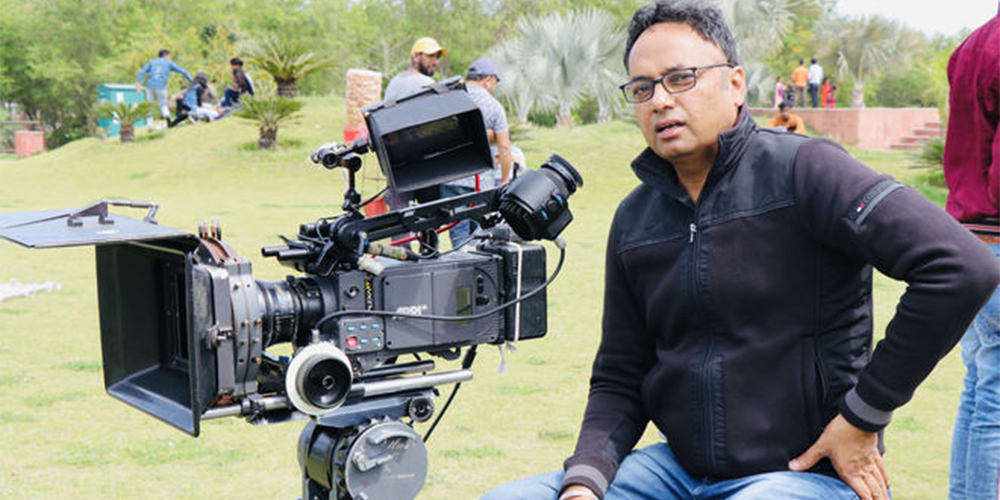Being a successful director demands lots of hard work, consistency, some unsuccessful years and lots of experience. While a film school helps hone movie making skills with a lot of networking with creative individuals, mentors and working with the right equipment, not everyone can afford the high costs of getting trained by professionals.
However, not able to get to a film school doesn’t mean that you cannot pursue your dream of movie-making as the most successful filmmakers have figured it out themselves. Assuming that you are starting from scratch and haven’t made much progress in the direction of your dream career, we have listed some tips that can help you become an effective storyteller and a breathtaking film director without breaking the bank.
How to become a filmmaker/director without going to film school?
Here are the top 7 tips that will help you hone your skills and become a better film director:
- Start networking
- Get on the film set
- Self-educate
- Lights, Camera, Action, Repeat
- Find a mentor
- Get out of your comfort zone
- Make a movie
1. Start Networking

While not getting to a film school helps you network with creative, passionate and driven individuals, it is not the only approach to start networking with like-minded entertainers. You can connect with people from the entertainment industry from the comfort of your home and build your own network with the digital entertainer’s network, EntNetwrk.
With the mobile application, you can build your profile, interact with other aspiring and established entertainers in over 45 entertainment categories, find opportunities to learn or collaborate with industry leaders. With an array of features and benefits offered by the platform, it helps you grow and use the power of social media wisely.
2. Get on the Film Set

Movie direction is a craft that requires more of getting on the ground zero than doing the theory. Get on a movie set in any role possible to you, experience how a film is made and take notes wherever you can. It doesn’t matter if you a student, intern, background actor, gaffer, script supervisor, or unpaid assistant. All you need is to immerse yourself in the practices of filmmakers and learn how things get done.
It is very unlikely that your first project will get you to direct a movie and it is even rare to get it made all by yourself without on set experience. In order to become a world-class competitive director, your work will demand constantly going back and forth with your film crew and it will be a whole lot easier for you if you will have a basic understanding of individual tasks with experience.
3. Self-Educate

If you are not able to go to a film school, you are lacking in a lot of valuable knowledge to becoming a film director. However, you can learn a lot more by self-educating with books, videos, articles, and free courses. There are decades of knowledge available for free and you can absorb the vision of veteran directors through documentaries or by consuming their content.
Knowledge is arguably the biggest skill one can achieve to accomplish anything in any field. The more you educate yourself with the fundamentals of film directing, the more you are going to tap into your visions and likings. Learning from the experiences of successful filmmakers will help you avoid common mistakes they did in the initial phase of their career.
4. Lights, Camera, Action, Repeat

Once you have made a network of like-minded people and learnt enough to start practising your craft, it’s all about getting better and better in your art. Just like no knowledge is ever enough, practising one’s craft is a life-long process for a competent career.
In order to improve direction skills and develop a great vision, a director must be good at many things including leading, management, diplomacy, organising, and motivation. But most importantly, a director must be good at writing, shooting, and editing sequences by himself in order to lead others with their vision. The more you practise different aspects of filmmaking yourself, you get one step closer to becoming a remarkable director.
5. Find a Mentor

Although you can learn almost everything from books and videos, hands-on experience with someone in your profession always leads to more fruits. While you can always look out to your favourite filmmaker as an inspiration, anyone a few steps ahead of you can turn out to be a great mentor to you with their recent experiences.
A mentor will not only bestow their knowledge on you but will also help you with unusual problems and confusions during your initial career. A mentor doesn’t need to be the most successful director in the world but someone who has a passion for filmmaking and has enough time to teach you the basics of filmmaking and take you as an assistant for projects. Just make sure that you are more of a help than a hindrance in the workflow.
6. Get Out of Your Comfort Zone

As the saying goes, the best version of anyone comes outside their comfort zone. However, you have to lie in the middle of the spectrum to avoid panic and excess stress. The more comfortable you get with your work, the less productive and creative you will become. However, overwhelming stress can do more harm than good and therefore, finding your sweet spot of stress is perfect for continuous growth.
If you are feeling lethargic or complacent, you are lacking a productive challenge or a task out of your comfort zone. Whether attempting to write something out of your liking or shooting a scene for a technique you haven’t tried, find a project that keeps you occupied with learning new skills.
7. Make a Movie

If your end goal is to direct a movie, waiting for the right opportunities to start your first project will never let you start your career. While it may be difficult to start filming a movie if you are a perfectionist, your goal of perfection will keep you from creating anything, much less anything good.
However, it is also not advisable to start filming your first project without any basic understanding of filmmaking or on-set experience. The idea is to take a leap at some time to keep taking one step towards your end goal instead of waiting for your first project to be the ultimate masterpiece.
Final Thoughts
Starting a career in direction can be overwhelming, especially when you lack education in film making. However, following these simple tips coupled with lots of hard work and consistency, any dream career can become your reality. All you need to do is start networking with the right minds and begin getting real-life experiences with some basic learning of film making fundamentals. Download EntNetwrk App to build your own network in the entertainment fraternity and learn from the industry experts.
